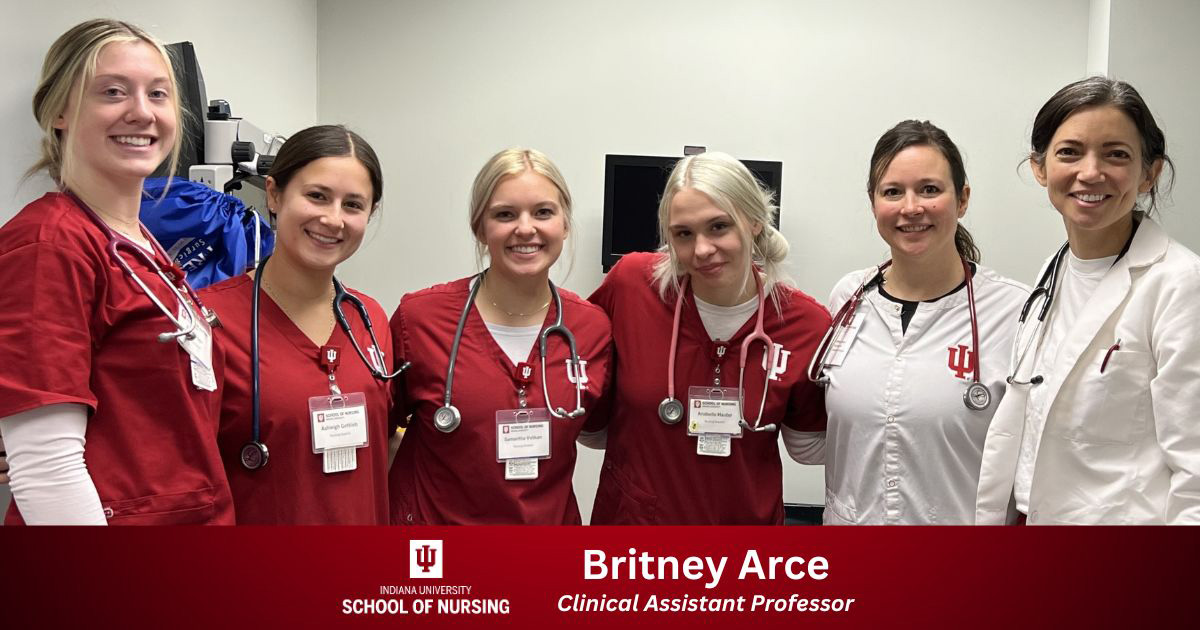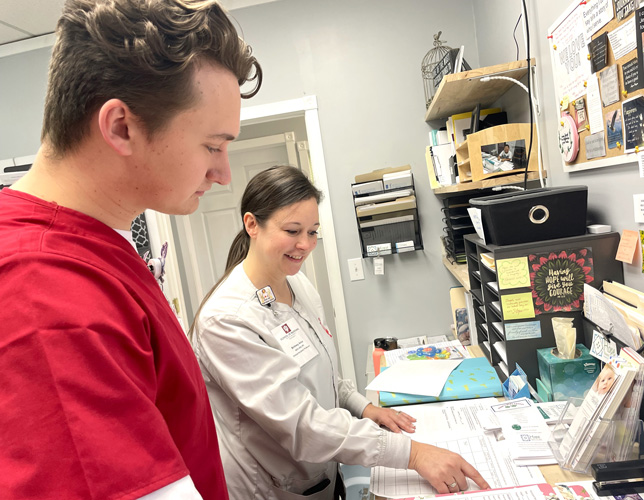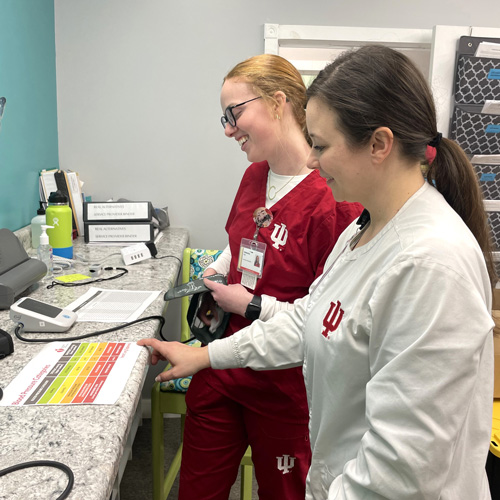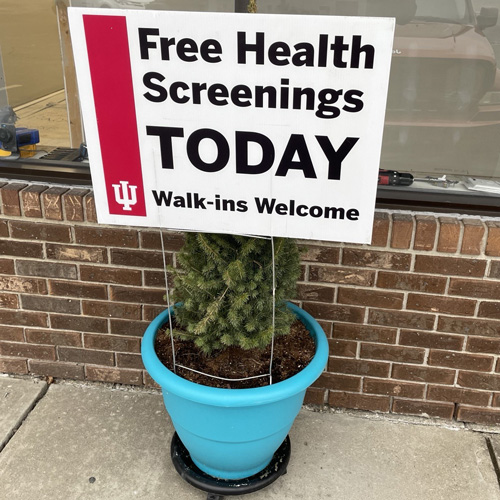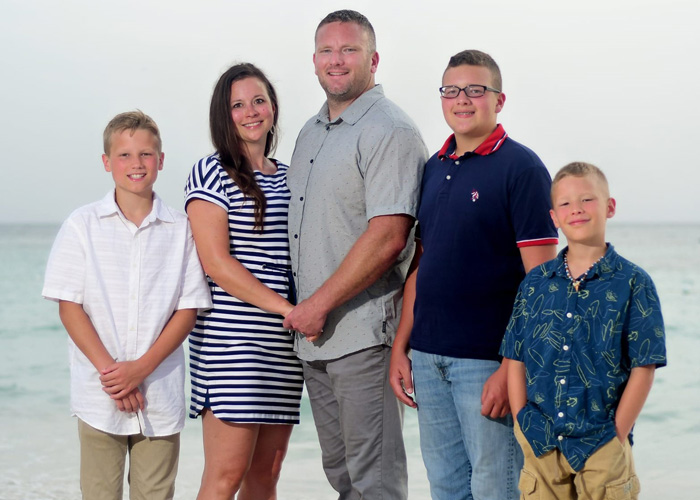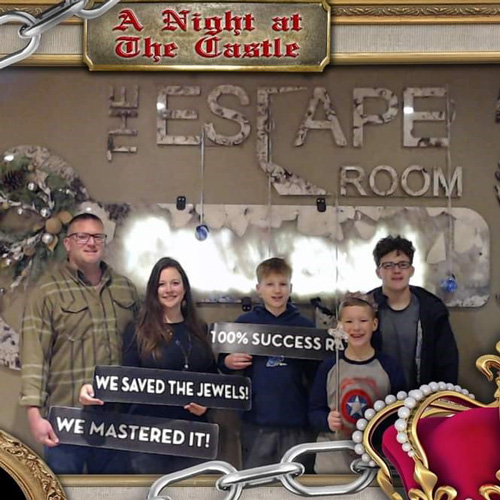Meet Britney Arce, MSN, MBA, RN, and clinical assistant professor at the IU School of Nursing. (She is pictured above second from right.) Arce's research focus is on improving preventative care within the rural community. She enjoys providing services to the community alongside nursing students, such as free health clinic screenings.
Much of the work you do at IU School of Nursing focuses on rural health care. Why is that so important? What are the challenges that rural Southern Indiana residents face when it comes to their health care?
Working in rural areas is something I really enjoy. The way the smaller communities care for each other is great, and the physicians we work with in the clinics care for patients from pediatrics to geriatrics. Some of the challenges residents face involve transportation to physician appointments and to some of the specialists’ appointments they need. The work we do in rural areas – in collaboration with physicians’ offices – helps bridge gaps in providing care to those who need it, but who may not qualify for things like home health care.
For several years now, you have run highly successful free regional health clinics. How did that come about? Do you have any special plans for the future of these clinics?
Tying in with your first question, some of our lower income areas have barriers to getting the lab work done that we offer – for free – at the clinics, such as hemoglobin A1c and cholesterol screenings.
Our free health care clinics started in Fall of 2020, when many people were not able to get their normal care from local physicians due to the pandemic, and we still couldn't go to many of our normal clinical sites.
We did a free health screening, consisting of vital signs and glucose readings, in the parking lot of the Lawrence County Health Department and had a great turnout! The Hope Resource Clinic Mobile Unit also joined IU School of Nursing in these efforts. Going into spring 2021, the health care screenings progressed with the help of the Center for Rural Engagement purchasing equipment and expanding our services to include cholesterol screenings.
Fast forward to most recently, and our services have expanded to offer hemoglobin A1c screenings, nutrition consults with a registered dietician, and social work students conducting mental health screenings.
What do you hope future IU nurses learn from these free clinics?
Critical thinking, compassion, point of care testing, health coaching, and improving their skills set when taking vital signs. Our students don't know who is going to come to the clinics, so they have to be ready to critically think through what the person's needs are, discuss the results with them, and get follow-up care set up, if needed. Before the clinics, students are trained on how to use all the equipment used in the screenings.
What would you like readers to know about First Thursdays?
Professor Samantha Eads asked me to get involved with First Thursdays, but she and our IUSON Student Ambassadors really laid the groundwork. First Thursdays is a great way for our students to be involved in a campus-wide event, while also providing Bloomington residents with free hemoglobin A1c testing.
On a personal level, what is something our students, faculty and staff don’t know about you?
Something people may not know about me is that I really enjoy Escape Rooms and riding roller coasters with my family. I love the challenge of Escape Rooms!
What is the best advice that someone has given you and who gave it to you?
I have received a lot of good advice from people over the years – including my husband, my parents, and mentors at work. I can't think of just one piece of advice, but I do feel like much of the advice I’ve been given has reinforced that, at times, I try to do too much. I tend to volunteer a lot, and I’ve learned that it's okay to say "no" to things and to ask for help when I need it.


